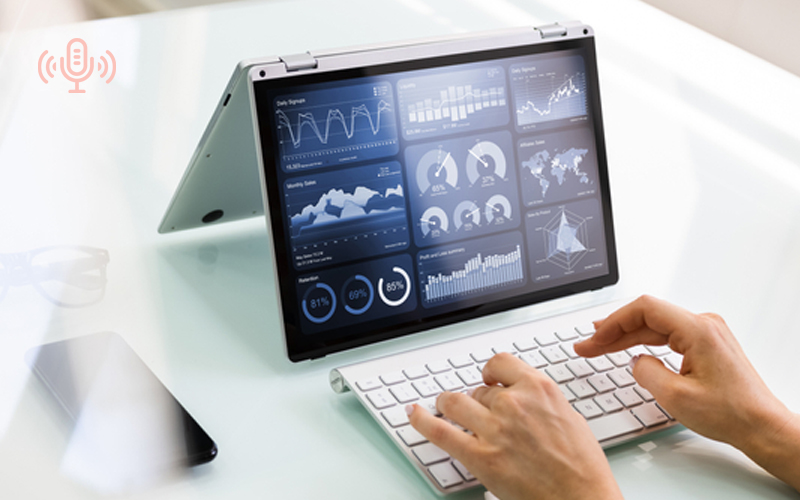Podcast Audio Transcript
Alisha: Hello listeners, this is Alisha; thank you for tuning in to yet another exciting and informative podcast from us at Infosys BPM. Today, we are discussing about employee well-being in the New Normal. And to talk about this, we have here with us, Clifford Mohan Pai, our Vice President & Head of Employee Relations. Welcome, Clifford. How are you?
Clifford: I’m doing great, Alisha. Thank you for having me again on this podcast.
Alisha: It’s a pleasure, Clifford. To start off with, could you provide a context into the idea of employee well-being, especially in the case of large organizations?
Clifford: Sure, Alisha. When we talk about employee well-being, we are referring to the overall mental, physical, and social health and happiness of our employees. It is an important aspect of a positive work environment and can have a significant impact on an organization's productivity, performance, and overall success.
Let me mention some of the benefits of investing in employee well-being:
- Firstly, increased productivity: Employees who are happy and healthy are more likely to be motivated, focused, and productive.
- Secondly, reduced turnover: Employees who feel supported and valued are more likely to stay with an organization. Investing in employee well-being can help reduce turnover, which can save organization time and resources that would otherwise be spent on recruiting and training new employees.
- Thirdly, enhanced reputation: Organizations that prioritize employee well-being are often seen as more attractive to potential employees, customers, and other stakeholders.
- And finally, improved customer service: Happy and healthy employees are more likely to provide high-quality customer service, which can lead to increased customer delight and loyalty.
In short, I would say that investing in employee well-being is paramount for the overall success of an organization.
Alisha: Absolutely, and those benefits are important for every type of organization.
The topic of employee well-being, especially in the New Normal, is very relevant. In your opinion, how has this idea transformed in today’s world?
Clifford: It’s a very relevant question, Alisha.
The New Normal has had a significant impact on employee well-being in large organizations. Many employees have experienced stress and anxiety due to the pandemic, including concerns about their own health and the health of their loved ones, financial insecurity, and the challenges of working from home.
To support employee well-being during the pandemic, global organizations like Infosys have implemented various measures, such as:
Providing resources and support for mental health: We have increased the availability of mental health resources, such as counselling services and employee assistance programs, to help employees cope with the stress and anxiety caused by the pandemic.
Promoting work-life balance: With many employees also working from home, it can be challenging to maintain a healthy work-life balance. We have implemented strategies such as flexible work arrangements and regular breaks to help employees manage their workload and avoid burnout.
Supporting physical health: Today, many people are experiencing increased sedentary behaviour and reduced access to physical activity opportunities. Organizations have implemented measures such as providing employees with virtual fitness classes to help them maintain their physical health.
Communication and transparency: Keeping employees informed and involved in decision-making processes can help build trust and reduce uncertainty, which can have a positive impact on their well-being. Organizations have increased communication and transparency during the pandemic to keep employees informed and engaged.
Overall, the pandemic has highlighted the importance of employee well-being and the need for organizations to provide support and resources to help employees cope with various challenges. As a key example, Infosys has partnered with Virgin Pulse, a leading provider of workplace well-being solutions, to bring our employees a uniquely designed and customized wellness program.
Alisha: Yes indeed, every employee is different and hence their needs also could be unique.
How do you make proper decisions on what wellness and health programs you design for your employees?
Clifford: We follow certain core principles in designing wellness programs for our employees. These principles include a strong feedback mechanism, inputs from business stakeholders, and a proactive approach.
We plan our wellness and health initiatives, pertaining to climate and current requirements. Some examples include our awareness sessions on dengue fever, precautions to be taken during monsoon, and sessions on ergonomics.
As I mentioned, we plan our sessions based on feedback from employees. The feedback is taken after every session, and the feedback is incorporated to design our future wellness strategies. We also have services like “Samaritan” and counselling support. “Samaritan” is a program that helps fellow Infoscions facing challenges in their professional and personal life. Each Samaritan is comprehensively trained on employee counselling skills and spends time listening to, empathizing with, supporting, and counselling fellow Infoscions.
Alisha: This is great for employees.
So, this must have had a great impact on employee satisfaction. Could you touch upon that?
Clifford: Absolutely, Alisha. We conduct employee an engagement survey, to check how we are doing in terms of employee engagement and wellness. This is a very important aspect of our interventions to create differentiated employee wellness programs. This survey is rolled out on a biannual basis.
Our employee satisfaction (ESAT) survey includes important questions on wellness. This gives us a fair idea of our interventions in terms of what we are doing good and what should be done better.
In our survey, across different parameters such as emotional well-being, family well-being, physical well-being, and overall care, we have seen exceptional overall scores. And, we stand at around 90% in our well-being support.
Alisha: These are admirable levels of employee satisfaction, Clifford. I am very happy to see you engage employees so well. Thank you so much for your time on our podcast today.
Clifford: It was a pleasure, Alisha.
Alisha: Dear listeners, if you enjoyed our podcast today, please don’t forget to share and like it on social media. Our social handles are mentioned in the podcast page. The podcast will be available on various platforms like Google Podcasts and Spotify, in addition to our website.
Also, if you have any queries, do reach out to us through the email address on the podcast description. Watch this space for more exciting podcasts coming up. Once again, thank you for tuning in, stay safe, sharp, and healthy. Have a nice day!






